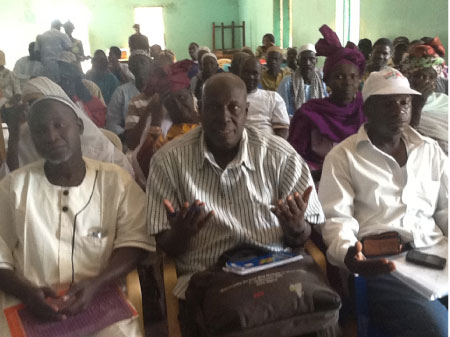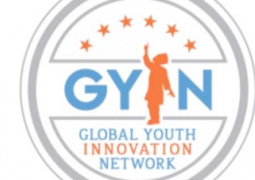
A three-day annual stakeholder’s consultative forum ended recently at the Agricultural Rural Farmer Training Centre in Jenoi, Lower River Region.
The programme was organised by the Participatory Integrated Watershed Management Project (PIWAMP) management unit.
The event, which attracted more than one hundred participants, included agricultural extension workers and other stakeholders drawn from across the country.
The objective of the meeting was to review 2012 project activities, constraints and achievements and strike a way forward to address some of the constraints and maximize agricultural productivity.
In his opening remarks, Lamin D. Darboe, governor of LRR, underscored the importance of the forum, saying it is all geared towards reducing poverty through optimizing crop productivity and enhancing household food security for the Gambian populace.
He therefore urged participants to identify the shortcomings and to critically deal with them, by coming up with tangible solutions to avert the problems.
Momodou Lamin Gassama, PIWAMP project coordinator, stated that PIWAMP project succeeded Lowland Agricultural Development Project (from 1997 – 2005) as development strategy of the lowland ecologies aimed at increasing rice production and household food security in the country.
PIWAMP, according to Gassama, was formulated to integrate all major players on the ground for sustainable use of the country’s land resources to overcome poverty and achieve household food security.
To make better impact, a sub-component under the PIWAMP project called Sustainable Land Management Project (SLMP) component of the project, was formulated with key objectives of establishing the National and Regional SLM Secretariats that will harmonize and coordinate all land management issues for the first time in the country.
Mr Gassama spoke of wide-range of successes registered by the PIWAMP project, especially in capacity building and construction of causeways and foot bridges, dykes and spillways, inter-village road improvement, gully plugs and contour bunds, agro-forestry, livestock watering points, development and production of village and site maps among others.
He said that environmental monitoring and crop data collection are two activities critical to the project implementation which has been successfully implemented by the National Environmental Agency and Planning Services Unit respectively.
Among other activities implemented were the launching of SLMP of GEF initiative under PIWAMP and the revival of the Country Programme Approach (CPA) meeting of the IFAD three projects.
Mr Gassama further commended IFAD and African Development Bank (AfDB) for their strategic support, adding that the project has developed land area of 34,000 ha for rice and upland cereal production to enhance household food security.
While urging farmers to redouble their efforts in ensuring sustainability of the projects, he commended the farmers for their commitment and collaboration during the implementation of the project.
He commended the Government of The Gambia for creating the enabling environment for the implementation of the project in the country.
Falalo Touray, deputy director-general of Agriculture, spoke at length on the importance of the forum, saying it availed the stakeholders the opportunities to review the previous activities that have been implemented by the project for the past twelve months.
It would also help to review its successes and weaknesses and come up with possible solutions to address the shortcomings, he said.
He challenged the agricultural extension workers to remain committed and ensure agriculture is well developed and improved to meet the increasing demand of the population of the country.
Read Other Articles In Article (Archive)


